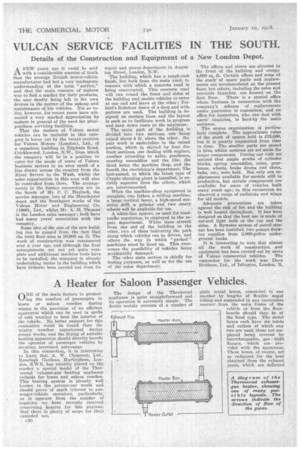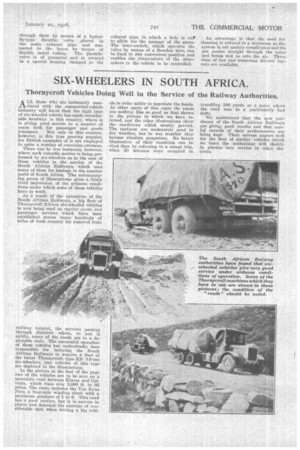A Heater for Saloon Passenger Vehicles.
Page 52

Page 53

If you've noticed an error in this article please click here to report it so we can fix it.
ONE of the main factors in promot4.-ling the comfort of passengers in buses or saloon coaches during winter is the provision of an efficient apparatus Which can be used in spells of cold weather to heat the interior of the vehicle. No better support for this contention could be found than the wintry weather experienced during recent weeks, and the fitting of suitable heating apparatus should directly benefit the operator of passenger vehicles by securing. increased patronage.
In this connection, it is interesting to learn that A. W. Chapman, Ltd., Renelagh Gardens, Burlingham, London, S.W.6, has recently placed on the market a special model of the Theymorad exhaust-gas heating appliance suitable for buses and saloon coaches. This heating system is already well known in the private-car world and should prove of much interest to passenger-vehicle operators, particularly, as it appears from the number of enquiries we have recently received concerning heaters for this purpose, that there is plenty of scope for their extended use.
c30 The design of the Thermorad appliance s quite straightforward and its operation is extremely simple. The device mainly consists of a number of
plain metal boxes, connected to oneanother by lengths of flexible me.,1a1 tubing and suspended in any convenient manner from the main frame of the
vehicle or from the floor boards should they he of the fixed type. The metal boxes each have six inlets and outlets of which any two are used, those not employed being covered by interchangeable, gas tight flanges, which are provided with the apparatus. These boxes, of course, act as radiators for the heat obtained from the exhaust gases, which are deflected through them by means of a butterfly-type throttle valve placed in the main exhaust pipe and connected to the boxes by means of flexible metal tubing. The throttlevalve is Of gunmetal and is secured in a special housing clamped to the exhaust pipe, in which a hole is cut" to allow for the passage of the gases. The lever-switch, which opefates the valve by means of a Bowden wire, can be fixed in any convenient position and enables the temperature of the atmosphere in the vehicle to be controlled. An advantage is that the need for cleaning is reduced to a minimum as the system is not unduly complicated and the gas passes straight through the tubes and boxes and so into the air. Three sizes of box and numerous drivers' layouts are available.












































































































